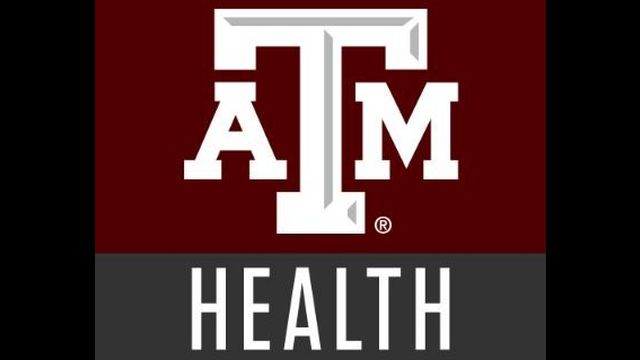
Texas A&M is using a $6 million dollar state grant to create a cancer research center.
The university has announced during the next five years, a group from the health science center will study how cancer risks are affected by environmental and lifestyle factors…then implement what is learned to improve cancer prevention efforts.
The grant money comes from the voter approved cancer prevention and research institute of Texas.
News release from Texas A&M:
Texas A&M University Health Science Center (Texas A&M Health) has been awarded a five-year, $6 million grant from the Cancer Prevention and Research Institute of Texas, CPRIT, to support the creation of a Texas Regional Excellence in Cancer, or TREC, Center.
The grant takes advantage of resources available to Texas A&M University to establish the infrastructure required to advance a cohesive vision to address unmet needs in cancer prevention and treatment regionally and across the nation.
The Texas A&M University Center of Excellence in Cancer will focus on mentoring early career investigators interested in cancer research, recruiting outstanding cancer researchers, and creating a highly interactive environment that promotes collaborations and incentivizes development of impactful cancer research programs of national and international relevance.
The program will draw from a talented pool of investigators from different academic units to study how biology and genes are modified by environmental and lifestyle factors to influence cancer risk and how to effectively use this knowledge to increase precision in cancer prevention and health care delivery.
Kenneth Ramos, M.D., Ph.D., Alkek Chair in Medical Genetics, executive director and assistant vice chancellor for health services, will serve as director of the center, and Robert Chapkin, Ph.D., University Distinguished Professor and Allen Endowed Chair in the College of Agriculture and Life Sciences Department of Nutrition and Department of Biochemistry and Biophysics, will serve as deputy director of this five-year grant.
The key components of the center include a Single Cell Data Analysis Core overseen by James Cai, Ph.D., created to facilitate single cell multi-omics research, and a Cancer Prevention Clinicogenomics Registry Core overseen by Rick Silva, Ph.D., to provide context for implementation of translational strategies in support of TREC projects.
Additional components include an Administrative Core, a recruitment committee and mentoring teams. Evaluation efforts will be overseen by Marcia Ory, Ph.D., Regents and Distinguished Professor at the Texas A&M School of Public Health.
The TREC initiative will build a critical mass of cancer researchers at Texas A&M, facilitate collaborations within and outside the institution, and support innovative cancer research that improves cancer prevention and the development of cures for these devastating diseases.
Project leaders include:
• Sanjukta Chakraborty, Ph.D., assistant professor, Department of Medical Physiology; Primary Mentor: Stephen Safe, Ph.D., University Distinguished Professor, Veterinary Medicine
• Irtisha Singh, Ph.D., assistant professor, Department of Cell Biology and Genetics; Primary Mentor: Nancy Huang, Ph.D., associate professor, Institute of Biosciences and Technology
• Shogo Sato, Ph.D., assistant professor, Department of Biology; Primary Mentor: Weston Porter, Ph.D., professor, Veterinary Medicine
• Shreya Raghavan, Ph.D., assistant professor, Department of Biomedical Engineering; Primary Mentor: Tanmay Lele, Ph.D., Unocal Professor, Biomedical Engineering and Chemical Engineering
Kenneth Ramos, MD, PhD, Robert Chapkin, PhD, Sanjukta Chakraborty, PhD, and Tanmay Lele, PhD, are CPRIT grantees who have been awarded grants for other projects.
